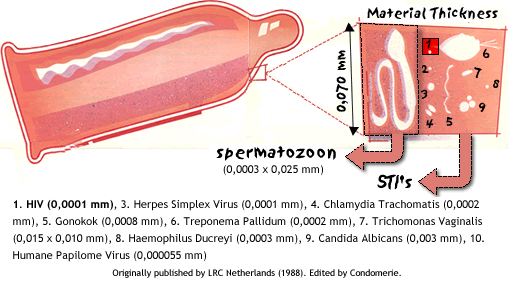HIV

HIV is the virus that can cause AIDS. It weakens the immune system so that the body is increasingly unable to fight off all kinds of illnesses. Someone who is infected with HIV is said to be HIV positive. If you’re HIV positive, you may feel fine, but in the meantime the virus is active and damaging your immune system. It could be 10 years before someone with HIV starts to have any real health problems. And the diagnosis ‘AIDS’ is not given by a doctor until the immune system is so badly damaged that the patient becomes quite ill. Once you are HIV positive, you can pass the virus on, even if you have no symptoms yourself. HIV is transmitted by unsafe sex, by blood-to-blood contact (e.g. needles, blood transfusions), at birth and during breast-feeding. The virus is mostly found in blood, semen, pre-seminal fluid, vaginal fluid and breast milk. Saliva, sweat, tears, urine and faeces are only dangerous if they contain blood and if there is a risk of this getting into another person’s bloodstream.
The treatment of HIV/AIDS with medicines is called antiretroviral therapy (ART). It is recommended for everyone who has HIV. The medicines do not cure HIV infection, but they do make it a manageable chronic condition. They also reduce the risk of spreading the virus to others.
Symptoms
- The first symptoms could be:
- Swollen glands, fever, diarrhoea, fatigue, night sweats
- Menstrual disorders
- Extreme weight loss
- Increased susceptibility to all kinds of infections and diseases
Safe Sex
Use a condom for anal, vaginal and oral sex. The risk of infection is greater during your period, if you have any damaged skin, or if you have another STI. Use a dental dam for licking the vagina and take care when sharing a sex toy: wash it or put a new condom on it before another person uses it. Anal sex is particularly risky because there is more chance that skin will be damaged. Oral sex gives only a slight risk of infection, as long as there is no ejaculation in the mouth or the woman doesn’t have her period. The concentration of HIV in vaginal fluid and pre-ejaculation is low and saliva reduces the effect of the virus.